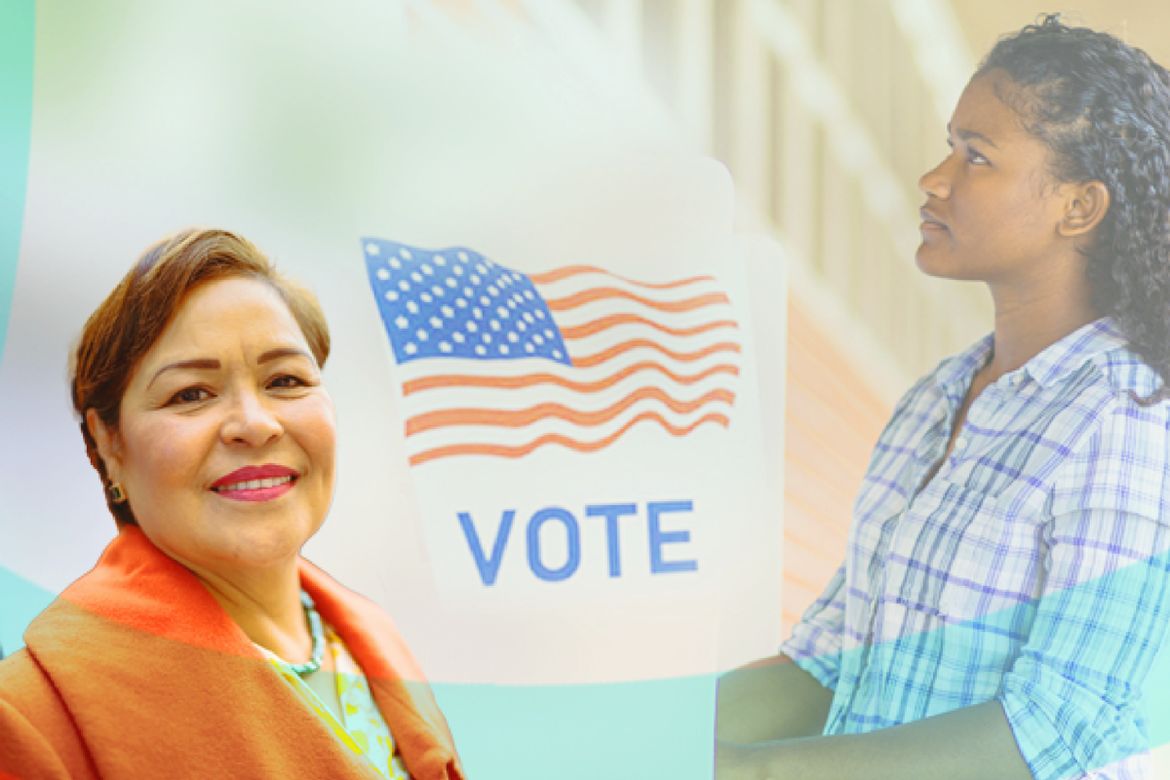
Courtesy of Latina Futures 2050 Lab
"This election cycle is a historic moment for Latinas to shape the future of U.S. politics," says Veronica Terriquez, brief co-author and director of UCLA's Chicano Studies Research Center.
As the 2024 presidential election approaches, a new research brief from the Latina Futures 2050 Lab highlights the growing influence of Latina voters in United States politics. Latinas are expected to play a pivotal role in determining the outcomes of this year's election in key battleground states.
The brief outlines how Latinas, as a youthful, rapidly growing electorate, are increasingly becoming a decisive voting bloc. Key findings include:
- Latinas comprise 12% of all women who are registered to vote in the U.S. and stand to have a strong influence in five states where they make up more than 20% of registered voters: Arizona, California, Nevada, New Mexico and Texas.
- In the 2020 presidential election, 68% of registered Latinas voted, surpassing the turnout of Latino men by 6 percentage points, setting the stage for large turnout numbers that have the ability to shift election outcomes.
- Latinas are younger on average compared to other key demographics, with a median age of 45 years, compared to 53 for non-Hispanic white women, indicating the opportunity to build up a younger, deeply engaged bloc of voters.
- In states like Arizona and Texas, Latinas' participation in critical debates such as reproductive rights has already begun shaping the political landscape.
The brief was authored by Chicano Studies Research Center director Veronica Terriquez; Steven Carmona Mora, who is pursuing a master of urban and regional planning degree and works with the UCLA Chicano Studies Research Center; and Sonja Diaz, founding executive director of the Latino Policy and Politics Institute and co-founder of Latina Futures 2050 Lab.
"This election cycle is a historic moment for Latinas to shape the future of U.S. politics," Terriquez said. "Latinas are not only a growing segment of the electorate, but they can also play an influential role within their communities. If candidates and campaigns address their concerns, Latinas may mobilize their family members and trusted networks, shaping the outcomes of elections for this election cycle and future election cycles. In key battleground states where they comprise a significant segment of the electorate, that power will also give them the ability to guide the direction of the country on critical issues such as women's rights, health care and economic justice."
Much of Latina Futures' work is focused on how engaging Latinas can help ensure a vibrant and multiracial democracy where historically underrepresented voices are heard. By understanding how elections impact their communities, Latinas encourage civic participation and amplify the voices of low-propensity voters. As candidates and political campaigns ramp up their last outreach efforts before November, the brief urges them to adopt culturally tailored strategies that speak to Latinas' policy concerns.
Read the full brief here.






